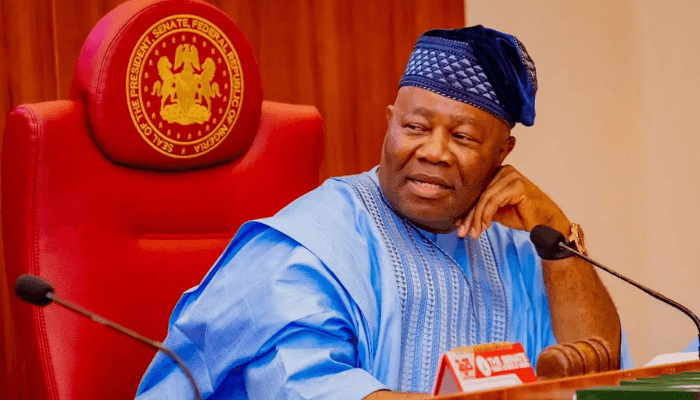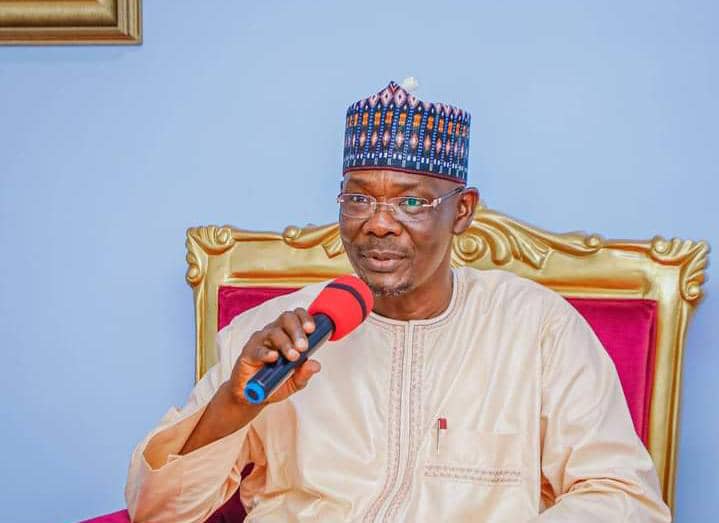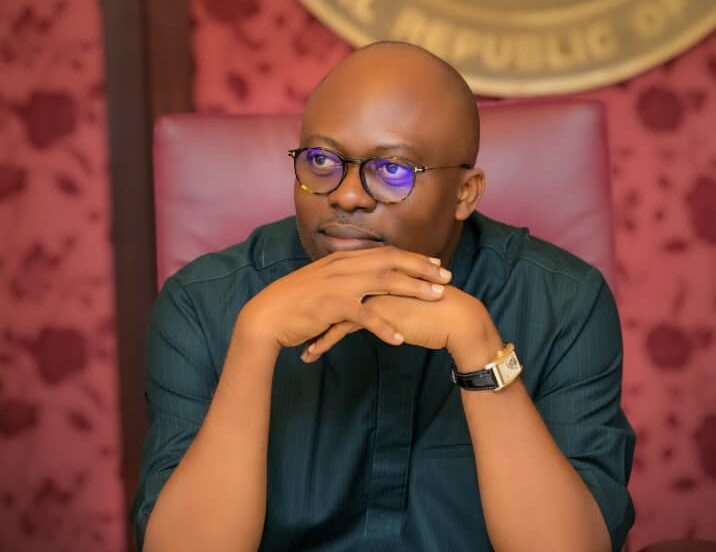Women Lawyers Congress Demands Clarification and Apology
Kano State’s Deputy Governor, Aminu Abdussalam, has found himself at the center of a political and ethical storm following alleged derogatory remarks he made about former First Lady, Professor Hafsat Umar Ganduje.
The Women Lawyers Congress (WLC), a prominent advocacy group for women’s rights and justice, has called on Governor Abba Kabir Yusuf to address the issue, demanding that he either clarify the remarks or ensure that his deputy offers a formal public apology.
This controversy has sparked widespread reactions, raising concerns about respect for women in leadership, the role of public officials in shaping societal values, and the need for ethical conduct in governance.
The Controversial Remarks and Public Backlash
The issue stems from a widely circulated video in which Deputy Governor Aminu Abdussalam allegedly made insulting comments about Professor Hafsat Umar Ganduje, referring to her as “Gwaggo”, a term that, while sometimes used as a title of respect for an elderly woman in Hausa culture, was perceived in this context as derogatory and dismissive.
The remarks have ignited strong reactions from various quarters, including women’s rights activists, legal professionals, and political analysts, who argue that such language is unbecoming of a high-ranking public official.
In response, Barrister Nafisa Abba Ismail, Chairlady of the Women Lawyers Congress, issued a strongly worded statement condemning the remarks and calling for immediate action.
“Public officials are expected to uphold a standard of decorum and leadership ethics. This is not just about one individual being insulted—it is about the values we promote as a society and the respect we accord women in leadership.”
She further criticized the Deputy Governor’s behavior, stating that it follows a worrying trend of disrespect towards respected figures in society.
Demands for Accountability

The Women Lawyers Congress has outlined clear expectations regarding how this issue should be handled:
✔️ Governor Abba Kabir Yusuf must provide a public clarification to confirm whether the comments were actually directed at Professor Hafsat Umar Ganduje.
✔️ If the remarks were indeed about her, the Deputy Governor must issue an official apology—not only to Professor Ganduje but also to the people of Kano State, whose leadership is expected to uphold high moral and ethical standards.
✔️ Future preventive measures should be put in place to ensure that such incidents do not repeat themselves, emphasizing the importance of respecting women in governance.
Barrister Nafisa stressed that this issue extends beyond personal grievances—it represents a broader struggle for dignity, fairness, and respect for women in political leadership.
“If the Deputy Governor continues making such remarks, we will have no choice but to pursue legal action. We are committed to ensuring that public officials are held accountable for their words and actions.”
Public Reactions and the Larger Implications
The controversy has triggered a wave of responses from citizens, political observers, and women’s rights groups.
Women’s Rights Advocates Speak Out
Women’s rights activists in Kano and beyond have rallied in support of the Women Lawyers Congress, emphasizing that derogatory language against female leaders only serves to undermine the progress women have made in Nigerian politics.
“We cannot allow public officials to demean women in leadership and get away with it,” said Aisha Suleiman, a gender equality advocate.
“These types of statements discourage young women from pursuing leadership roles, as they fear they will not be respected.”
Political Analysts Weigh In
Political analysts have noted that this issue could have wider implications for Kano State’s political climate, particularly as the 2027 elections approach.
“Governor Yusuf has to tread carefully,” said political commentator Malam Abdulrazaq Bello.
“If he fails to act, it could damage his administration’s credibility, especially among women voters.”
The controversy also raises questions about leadership ethics in Nigeria, with many calling for stronger policies against verbal abuse and misogynistic remarks in politics.
A Call for Responsible Leadership
The Women Lawyers Congress has emphasized that leaders must set a positive example in public discourse. The statement released by the organization warns that if this behavior goes unchecked, it could normalize disrespect towards women in politics and set a dangerous precedent for governance.
“A leader’s words carry weight. When people in positions of power use their influence irresponsibly, it erodes trust in governance and discourages women from aspiring to leadership positions,” said Barrister Nafisa.
She further urged other political figures and civil society organizations to speak out against disrespectful conduct in governance and work towards fostering a culture of mutual respect in politics.
Read also: “Kano State Governor Grants Automatic Employment to 54 Graduates from India”
What Happens Next?
With mounting pressure, all eyes are now on Governor Abba Kabir Yusuf and Deputy Governor Aminu Abdussalam to see how they will handle the growing backlash.
✔️ Will there be a clarification on the remarks?
✔️ Will the Deputy Governor issue a public apology?
✔️ Or will the Women Lawyers Congress take legal action to ensure accountability?
The coming days will determine whether this controversy fizzles out or escalates into a more serious political and legal battle.
Regardless of the outcome, one thing is clear: public officials must be held to high standards of respect, responsibility, and ethical leadership.
















Got a Questions?
Find us on Socials or Contact us and we’ll get back to you as soon as possible.